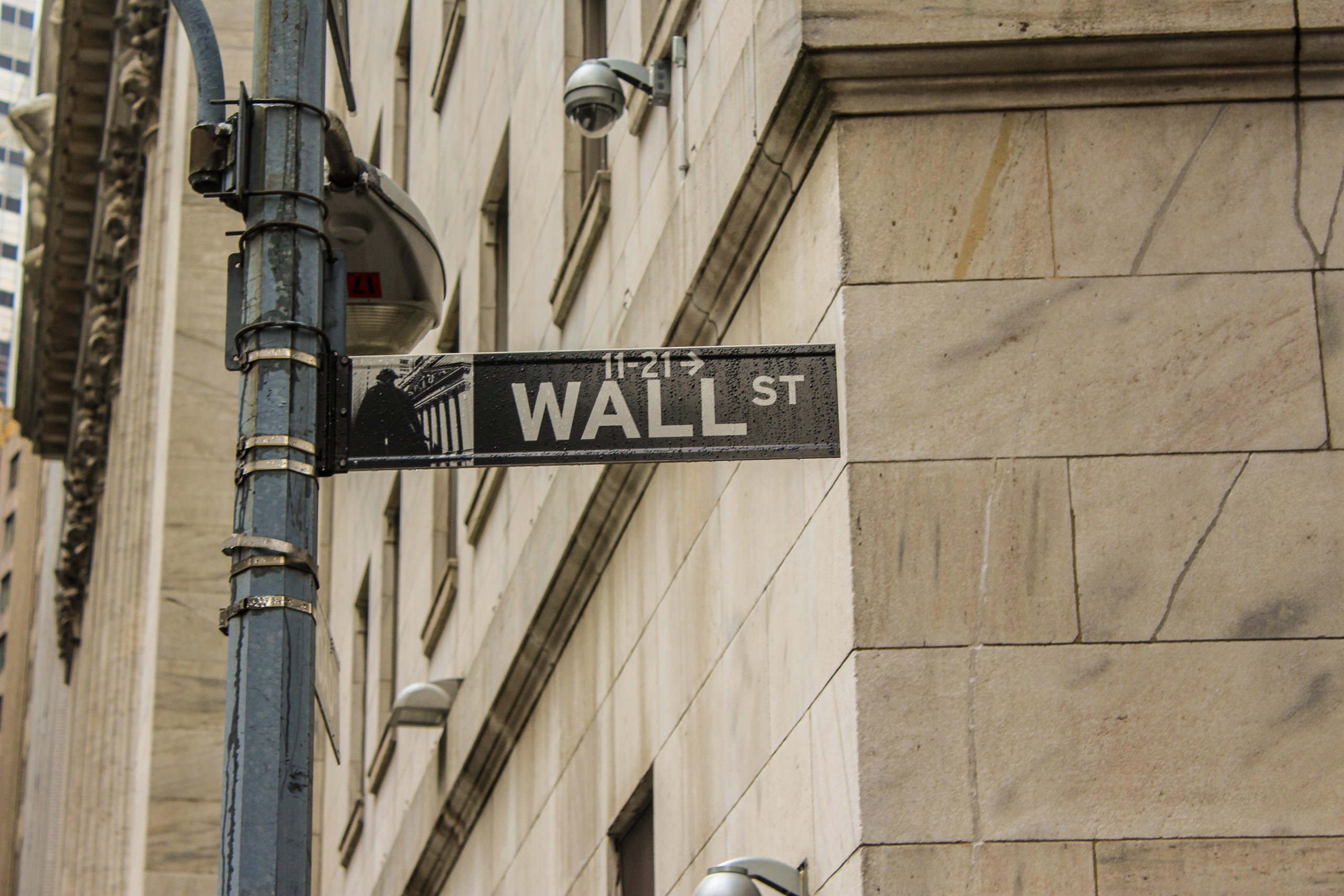Reddit. Hedge funds. Elon Musk. Video games. Twitter. 13th century English folklore.
You would be forgiven for thinking this odd group of seemingly unrelated words are the beginning of a bad joke, but you would be wrong. They are, in fact, keys to understanding the stock market craze that has shaken Wall Street.
Perhaps one of the most unexpected parts of this story is the centrality of the social news and discussion website Reddit. The subreddit “r/wallstreetbets” is an investment and trading themed online community and discussion forum. On its frequently asked questions page, WallStreetBets describes itself as “a community for making money and being amused while doing it”. Importantly, the members of WallStreetBets are retail investors. The WSB redditors have varying levels of investment experience and knowledge, but regardless are ordinary people and not investment professionals. In fact, many of the community members harbour great resentment against investment professionals and financial media (especially CNBC), viewing them as immoral, elitist and manipulative. WallStreetBets is a microcosm of some of the most significant contemporary debates about financial markets and the economy.
For example, there are many, on WallStreetBets and beyond, who believe that short selling is inherently wrong. Short selling is an investment strategy where you are essentially betting against the success of a stock. To put it simply, the investor borrows a stock, sells it at the current price, and hopes that they will be able to buy it back at a lower price to return it to the original owner and make a profit on the difference. Hedge funds, a type of asset management firm, have been using this strategy both to make money and to minimise the risk of their investments since Alfred Winslow Jones founded the first hedge fund in 1949.
It would not be an exaggeration to say that many WSB redditors absolutely despise hedge funds. Reading WallStreetBets allows you to understand their perception that short selling destabilises both the overall market and individual companies. The subreddit is filled with both financial analytical reasoning and anecdotal examples from people such as this redditor who described allegedly working for a retailer that suffered under a media attack supported by short sellers, saw the share price plummet, and fired thousands of employees, all while the short sellers made their profit with no regard for the human impact. One commenter on the same thread called hedge funds the “Corporate Raider” and “Economic Hitman” of finance.
In early January, this is the context under which thousands of WallStreetBets redditors begin to buy shares of the electronics and video game retailer GameStop (ticker symbol $GME), as well as others stocks shorted by the hedge fund Melvin Capital Management (such as Bed Bath and Beyond and AMC Entertainment). On January 8th, $GME was at $17.69. By January 21st, the price was over double that at $43.03. Five days later, Tesla CEO Elon Musk tweeted a single word, “Gamestonk!!”, with a link to r/wallstreetbets. “Stonk” is an intentional misspelling of the word stock often used in internet meme culture. Musk, like the redditors, also hates short sellers, and dislikes Melvin in particular because the firm used to short Tesla. That day, GameStop went up another 105%.
On January 28th, $GME- a stock with a fifty-two week low of $2.57, negative earnings per share for the last three quarters, and that is widely considered to be a dying business- reached a record intraday high of $483 completely unrelated to any fundamental financial information or news about the company.
Melvin Capital Management closed out their position in the stock on Jan 26th taking a massive loss of 53% for the month of January. The firm’s assets under management fell from $12.5 billion to $8 billion, which includes the almost $3 billion investment made by Citadel and Point72 Asset Management to rescue Melvin from disaster. WallStreetBets successfully initiated and drove a short squeeze, inflicting great pain on short sellers as intended and for many of the redditors and other $GME investors, generating stunning returns in the process.
On a morning episode of CNBC’s Squawk Box, anchor Joe Kernen highlighted the astonishing returns that $GME has generated in the last few weeks, joking that the unprecedented run has made “Bitcoin look like T Bills”. He was referring to the incredible gains in the value of the cryptocurrency in the last 6 months, which could have been considered to be the most significant financial market sensation in recent years before the GameStop frenzy blew it out of the water. Jaydyn Carr, a ten-year-old investor who received around $60 worth of GameStop shares as a Christmas present in 2019, made a profit of $3,200 when he sold: a return of over 5000%. Ryan Cohen, the co-founder of the pet product e-commerce company Chewy, made an initial investment of $76 million in 2020. By the time $GME reached its intra-day high on the 25th, his 9 million share stake was worth over $1.3 billion. That represents a return of over 1,700%. Cohen was basically making over $90m dollars a day in gains during the two weeks prior to January 27th. Michael Burry, the investor made famous by the movie ‘The Big Short’ for betting against the US housing market just before the 2008 financial crisis, reached a gain of 1500% on the 25th. Burry has publically congratulated those who, like him, have managed to be successful with the stock, but has expressed concern about the rally, calling it “unnatural” and “insane”.
People like Michael Burry are worried by the unusual behaviour of GameStop stock. People on WallStreetBets, on the other hand, are elated. For many of the WSB redditors, this has all been about more than just making money because of greed. For some people there is a real point to be made in highlighting weaknesses in the stock market, and a moral as well as a financial victory in forcing hedge funds and other short sellers who they view as bad actors to lose billions of dollars. There are redditors claiming to have used or plan on using their gains to donate meals for healthcare workers, buy a water pump for a community without running water, pay off their parents’ mortgage, or go to a GameStop store and hand out free cash to employees. Former White House communications director and Skybridge Capital founder Anthony Scaramucci argued that episode is part of a huge sea change, the “French Revolution of Finance”. Indeed many of the redditors do see themselves as revolutionaries taking on corrupt elites and institutions- “forcing the hand of the big guys”, as WSB founder Jaime Rogozinksi put it.
When investing app Robinhood and several others froze trading on $GME and a selection of other stocks, many on WallStreetBets and all over social media argued that the apps were freezing the ability to buy GameStop stock to protect hedge funds. Robinhood claimed that the pause was a result of the unexpected high trading volume and that they needed to fulfil a regulatory liquidity requirement and raise additional capital before allowing customers to continue buying through their service. In the UK, Trading212 told app users that they were having technical issues with their server, also as a result of the high volume. Barstool Sports founder Dave Portnoy rejected this reasoning. He also rejected the idea that the freeze was to protect retail investors, implying that it would be misled paternalism since people knew going in that this was a risky investment. Instead, he argued, it simply “seemed like it was just the little guy was winning, and the rules changed on the fly”. It has not helped Robinhood’s case that the other half of Citadel LLC, the company that owns Citadel who helped bail out Melvin Capital Management, is a business called Citadel Securities- a market maker that processes trades for Robinhood. Essentially, the accusation is that Robinhood has directly contradicted the character of their folkloric namesake and stated mission to “democratize finance for all”. Citadel and Robinhood deny any link between their business relationship and Robinhood’s operational decisions, but reputational damage has been done regardless.
For many people, this situation has been much needed entertainment during the coronavirus pandemic and indeed, this is a ridiculous, hilarious story which at times feels like it really cannot be real and must be a big joke. However, the GameStop rally has triggered endless questions about the ethics and functioning of financial markets. US House Speaker Nancy Pelosi announced that there will be scrutiny from Congress on the situation, but there have been no further details about what that means. The Securities and Exchange Commission vowed to enforce harsh consequences if there is any “abusive activity” found to have occurred. Some are calling for consequences for the redditors, but it is bound to be extremely difficult to punish large numbers within a mostly anonymous online group of decentralised individual retail investors who are unlikely to have actually done anything illegal. Many believe that the incident demonstrates a need for greater regulation to stop something like this happening again, but there are huge disparities concerning who and what should be regulated, from retail investors to trading apps to social media and beyond. Some WSB redditors would like to believe that this is the end of Wall Street as we know it, part of a shift towards making the economy and finance benefit more than just top 1% of the American people.
As of now, it is unclear what any of this will mean for the future. What is clear is that this is a major episode in financial history that is so intriguing largely because it is so odd and confusing. Because, like most of the last year, it has shattered norms and assumptions, and stretched our perceptions of just how much uncontrollable, inexplicable chaos is possible.






0 Comments